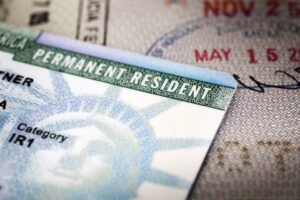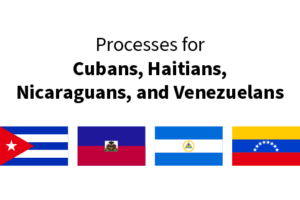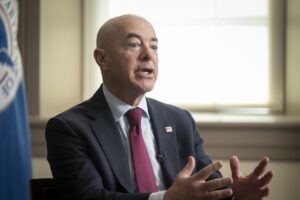Family-Based Immigration
*Actual Clients
Family-based immigration is one of the most useful and common methods for legal immigration to the United States. In family-based immigration, a U.S. citizen or lawful permanent resident can petition certain family members for a visa that provides permanent residence, also known as a “green card.”
Investigate Nassim Arzani’s American Law Center blog for helpful updates and experienced wisdom from an attorney who specializes in immigration and nationality law. Nassim Arzani has almost two decades of background helping families enter or remain in the United States legally.
The Benefits of Family-Based Immigration
Permanent immigration or lawful permanent residency in the U.S. comes with a variety of rights and privileges, including the right to permanently live and work in the United States. If you want to immigrate to the U.S. through the family-based category, your relative who is either a U.S. Citizen or a Lawful Permanent Resident must petition you.
What Is Family-Based Immigration?
Family-based immigration involves two family members, who, according to the United States Citizenship and Immigration Services (USCIS), shall be seen as the petitioner and the beneficiary. The petitioner must be a U.S. citizen or lawful permanent resident that wants to petition a foreign family member for a green card. The beneficiary is a foreign family member that wants to obtain a green card.
Nassim Arzani has dedicated her career to serving immigrants in need. She is an expert in U.S. immigration law because she wants to help people and their families enjoy a fruitful and productive life in the United States. Contact us to schedule an informative in-person consultation with one of the leading immigration lawyers in Los Angeles. Call (951) 683-0900 to get the conversation started.
Immigration Eligibility
One of the first and most important hurdles to clear in the process will involve determining you and your family member’s eligibility for family-based immigration.
Requirements for Petitioning a Family-Based Green Card
- Immigration petitioner must be a U.S. citizen or lawful permanent resident
- Petitioner must demonstrate that they have the financial ability to support the beneficiary, proving the petitioner earns an annual income of at least 125% above the poverty guideline
- Petitioner must be a spouse, parent, child or sibling of the beneficiary
In addition to the above criteria, the beneficiary must also meet certain requirements to be eligible for admission into the United States. These criteria are universal across U.S. immigration law, regardless of one’s particular path to immigration. United States immigration laws prohibit the issuance of visas to individuals whose presence will threaten the peace, health or general well-being of the U.S. residents.
Am I Eligible for Family-Based Immigration?
The most important requirement for beneficiaries of a Family-Based Green Card is that they are not deemed inadmissible.
Categories of Inadmissibility
- Health-related grounds
- Immigration beneficiary must be free of communicable disease
- Beneficiary should not be affected by a serious mental or physical disorder
- Beneficiary must not have a substance abuse disorder, must be vaccinated
- Security-related grounds
- Public charge-related grounds
- Illegal entries and immigration violations
- Previous removals or deportationsCriminal-related grounds
In order to be admissible for immigration, the beneficiary cannot be Convicted of a Crime Involving Moral Turpitude (CIMT), unless it comes within the petty offense or youthful offender exceptions.
Exceptions to Criminal-Related Inadmissibility
- Petty Offense Exception: client committed only one CIMT, which carries a potential sentence of a year or less, and a sentence of no more than six months was imposed
- Youthful Offender Exception: client committed only one CIMT while under age of 18 and conviction and resulting jail ended at least five years ago
Immediate Allotment Categories
Immediate relatives enjoy special advantages in the immigration process.[3] To qualify for immediate allotment, the petitioner must be a U.S. citizen. Also, the petitioner and the beneficiary must share a specifically defined familial relationship, described below.
What Is an Immediate Relative According to the USCIS?
- Spouse
- Parent (if and only if the applicant is aged 21 or older)
- Unmarried children of the citizen (if they are 21 years of age or younger)
there is no limit to the number of immediate relatives the U.S. can accept as immigrants into the U.S. each year.
Preference Categories
In family-based immigration, preference categories prioritize certain familial relationships over others for the purposes of sponsoring the beneficiary of a green card.
What Are the Preference Categories for Family-Based Immigration?
- First Preference: Unmarried adult (above the age of 21 years) sons and daughters of U.S. citizens.
- Second Preference: Spouses and unmarried sons and daughters of any age of Lawful Permanent Residents.
- Third Preference: Married sons and daughters of U.S. citizens.
- Fourth Preference: Brothers and sisters of adult U.S. citizens.
How Do I Apply for Family-Based Immigration?
The petitioner is who usually initiates the family-based immigration process. The petitioner is the U.S. citizen or lawful resident making the request to the U.S. government so that they may petition a family member for immigration. The petitioner must submit Form I-130 (Petition for Alien Relative) at a USCIS center, along with the necessary documentation. Once USCIS receives your visa petition, it will be approved or denied. In the event that the petition is approved, USCIS will notify your petitioner.
USCIS then sends the approved visa petition to the Department of State’s National Visa Center. The Center will notify you when the visa petition is received and again when an immigrant visa number is available. The immigrant visa numbers are allotted on the basis of the preference categories (described above). You can check your visa number allotment status in the Department of State’s Visa Bulletin.
There are two basic paths to apply for the green card: consular processing or adjustment of status. Consular Processing is a means for applying for an immigrant visa through the U.S. embassy or consular office in another country. Consular processing is the most common path to obtain a green card. Adjustment of status is the process of changing immigration status to permanent resident. Adjustment of status is only available to a small group of applicants.
Expected Outcomes
Once USCIS approves the I-130 petition, they will generate a visa number for the aspiring immigrant. At this time, the foreign family member may apply for a green card. However, it is important to be aware that the time frame for this process can vary significantly depending on the family member’s preference category.
The “immediate allotment” preference category does not have an annual limit, meaning there is always an unlimited number of visas available for applicants in this category, as long the beneficiary and the sponsor are both eligible for family-based immigration. By contrast, applicants in other preference categories may have to wait for several years before they are able to adjust their status.
A Petitioner’s nation of origin may affect the waiting period for a petition. Applicants from countries like India, Philippines, China, and Mexico may have to wait for 10 to 20 years, depending on their visa subcategories’ backlog.
Our Other Services: Consular Processing
As part of her comprehensive immigration services, Nassim Arzani includes legal counsel for your Consular Processing process. During consular processing, you apply for an immigrant visa through the U.S. embassy or consular office in a foreign country. Part of this process may include procuring a provisional waiver for the immigrant. Provisional waivers allow you to waive the period of unlawful presence you accrued in the United States.
Your Consultation with Immigration Attorney Nassim Arzani
Nassim Arzani is a highly trained and experienced attorney. As one of the top immigration and nationality lawyers in Los Angeles, she has dedicated her career to service. Her practice has helped thousands of families through the complex and confusing labyrinth of American immigration law. She feels her most fulfilled when she is using her skills knowledge to help those most in need. Ms. Arzani wants to help you if you and your family members qualify for family-based immigration.
At your personal consultation, Nassim will become acquainted with your case. By learning your story, she will determine the most streamlined strategy for bringing you and your family members together. Contact us to begin a conversation that may one day lead to a legal victory against administrative pitfalls and pervasive bureaucratic apathy. Call our offices in Riverside, California, at (951) 683-0900 to book your personal appointment with Nassim. When the odds are overwhelming, you’ll be glad she’s in your corner.
How Much Does Family-Based Immigration Cost in Los Angeles?
Nassim Arzani is committed and capable of helping to effectively and efficiently navigate the process of family-based immigration. The process is complex and it isn’t always fair, but Nassim is here to help keep families together in the United States. For the uninformed, there may be many unforeseen expenses. For instance, the most common minimum annual income required to sponsor a spouse for a marriage-based green card is $21,550. The income requirements increase based on family size. During your personal consultation, Nassim will learn the details of your situation and quote you a reasonable cost.
Let your family’s story reside among American Law Center’s many victories. Nassim’s grateful clients sing her praises in our reams of positive reviews. Contact us to book your appointment at the American Law Center.
FAQ
What kinds of convictions can impede or obstruct your immigration to the United States?
- Multiple Convictions: the petitioner must not have been convicted of two or more crimes
- Controlled Substance Violations: a single conviction for any controlled substance triggers inadmissibility under 8 U.S.C. § 11182(a)(2)(A)(i)(II), INA § 212(a)(2)(A)(i)(II)
- Traffickers in Controlled Substances: the petitioner may be ineligible if a DHS official has a “reason to believe” that the noncitizen is or was a drug trafficker under 8 U.S.C. §182(a)(2)(C), INA § 212(a)(2)(C)—no conviction is necessary to trigger inadmissibility under this section
- Drug Addiction: a noncitizen who is a “drug addict” or “drug abuser” is inadmissible
- Prostitution: people who are coming to the United States to engage in prostitution or who have engaged in prostitution within 10 years of the date of application for a visa are inadmissible for entry into the United States.
- Terrorist Activity: a noncitizen must not be a terrorist or belong to a terrorist organization
- Human Trafficking
- Money Laundering
A waiver exists to forgive a single conviction for simple possession of 30 grams or less of marijuana for personal use. 8 U.S.C. § 11182(h), INA § 212(h) noncitizen.





